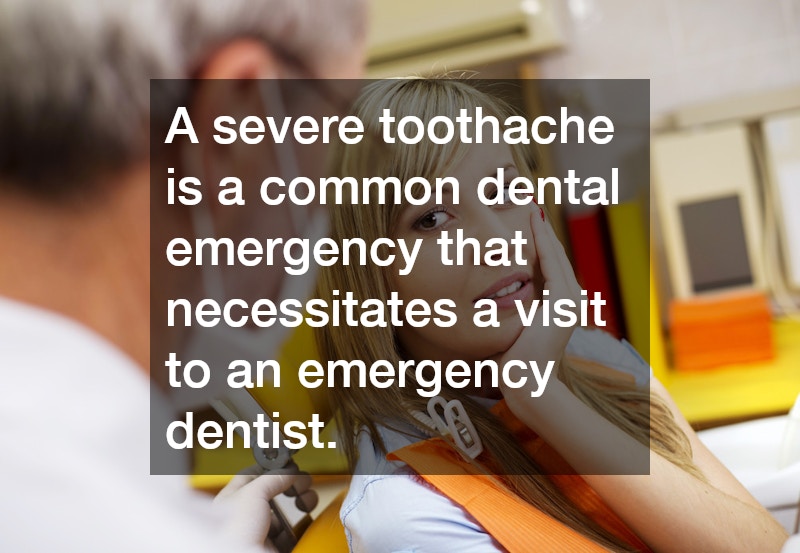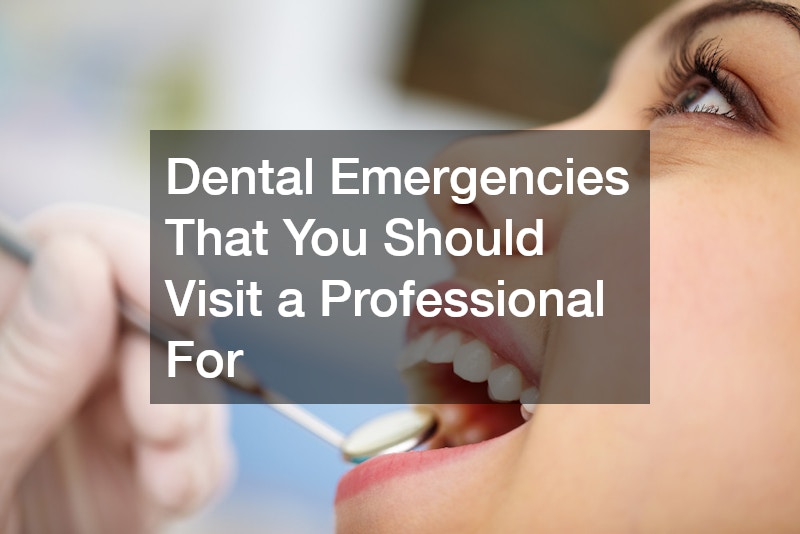Dental emergencies can occur at any time, often when we least expect them. Understanding when to seek professional help from an emergency dentist is crucial to addressing these urgent issues promptly and effectively. This article explores the various situations that constitute a dental emergency and why professional intervention is necessary.
Severe Toothache
A severe toothache is a common dental emergency that necessitates a visit to an emergency dentist. This type of pain can indicate underlying issues such as tooth decay, abscess, or infection. Ignoring a severe toothache can lead to more complex dental problems, emphasizing the importance of immediate professional attention.
A toothache can disrupt daily activities and severely affect one’s quality of life. Pain relief techniques like rinsing the mouth with warm water or using a cold compress may offer temporary relief. However, these measures do not address the underlying cause, reinforcing the importance of consulting an emergency dentist.
Timely intervention by a dental professional helps diagnose the root cause of the toothache. They can provide treatments ranging from filling cavities to root canal therapy. Early treatment not only alleviates pain but also prevents further dental complications.
Knocked-Out Tooth
A knocked-out tooth is another serious dental emergency requiring immediate care from an emergency dentist. The sooner the tooth is treated, the higher the chances of saving it. Immediate professional intervention can lead to reinsertion and recovery of the tooth.
If a tooth is knocked out, it is essential to keep it moist at all times. One way to do this is by placing the tooth in a container of milk or a saltwater solution. Nonetheless, visiting an emergency dentist remains critical to attempt proper re-implantation.
Time is of the essence when dealing with a knocked-out tooth. Emergency dentists can provide the expertise needed to assess and manage the situation. Quick action can prevent permanent tooth loss and restore oral health.
Chipped or Broken Tooth
A chipped or broken tooth, although sometimes less painful, is a condition that benefits from professional assessment. Depending on the severity, it might expose nerve endings, leading to heightened sensitivity and pain. An emergency dentist can evaluate the extent of the damage and offer appropriate solutions like bonding, veneers, or crowns.
Even minor chips can harbor potential for further dental issues if left untreated. They can lead to infections or alter the alignment of your bite. Seeking prompt professional care minimizes these risks and helps maintain optimal dental health.
Visiting an emergency dentist ensures that any structural damage to a tooth is promptly repaired. They can provide cosmetic and restorative treatments, thereby preserving tooth functionality and appearance. This approach helps in preventing long-term dental complications.
Abscess or Swelling
Dental abscesses are pockets of pus caused by bacterial infections and represent a significant dental emergency. The presence of a swollen area in the mouth or face often accompanies this condition, signaling an urgent need for an emergency dentist. Without prompt treatment, abscesses can lead to severe infections and other health complications.
The pain and discomfort associated with abscesses can be intense. They require immediate intervention to drain the pus and address the infection. Visiting an emergency dentist ensures that the abscess is treated correctly and any underlying dental issues are identified.
Professional dental care can provide necessary treatments to eliminate infections and prevent recurrence. An emergency dentist may prescribe antibiotics and recommend additional interventions to restore overall oral health. Timely action is essential to prevent the spread of infection and other serious health issues.
Bleeding Gums
While gums can bleed due to rigorous brushing, persistent or excessive bleeding can indicate serious health concerns. Conditions like periodontal disease or oral trauma necessitate a visit to an emergency dentist. Early professional care can prevent the progression of gum disease and associated complications.
Bleeding gums should not be ignored as they might reflect systemic issues affecting oral health. An emergency dentist can provide a thorough examination to determine the cause of the bleeding. This helps in providing effective treatments tailored to individual needs.
Prompt treatment can address the underlying causes of gum bleeding, easing discomfort and preventing further oral health decline. It can include professional cleaning, medications, or other necessary dental procedures. Seek immediate care to maintain healthy gums and teeth.
Dental emergencies can pose a threat to both oral and overall health if not addressed promptly. Recognizing situations that require the expertise of an emergency dentist can safeguard against severe complications. Prioritize timely professional dental care to ensure effective solutions and sustained oral health.

